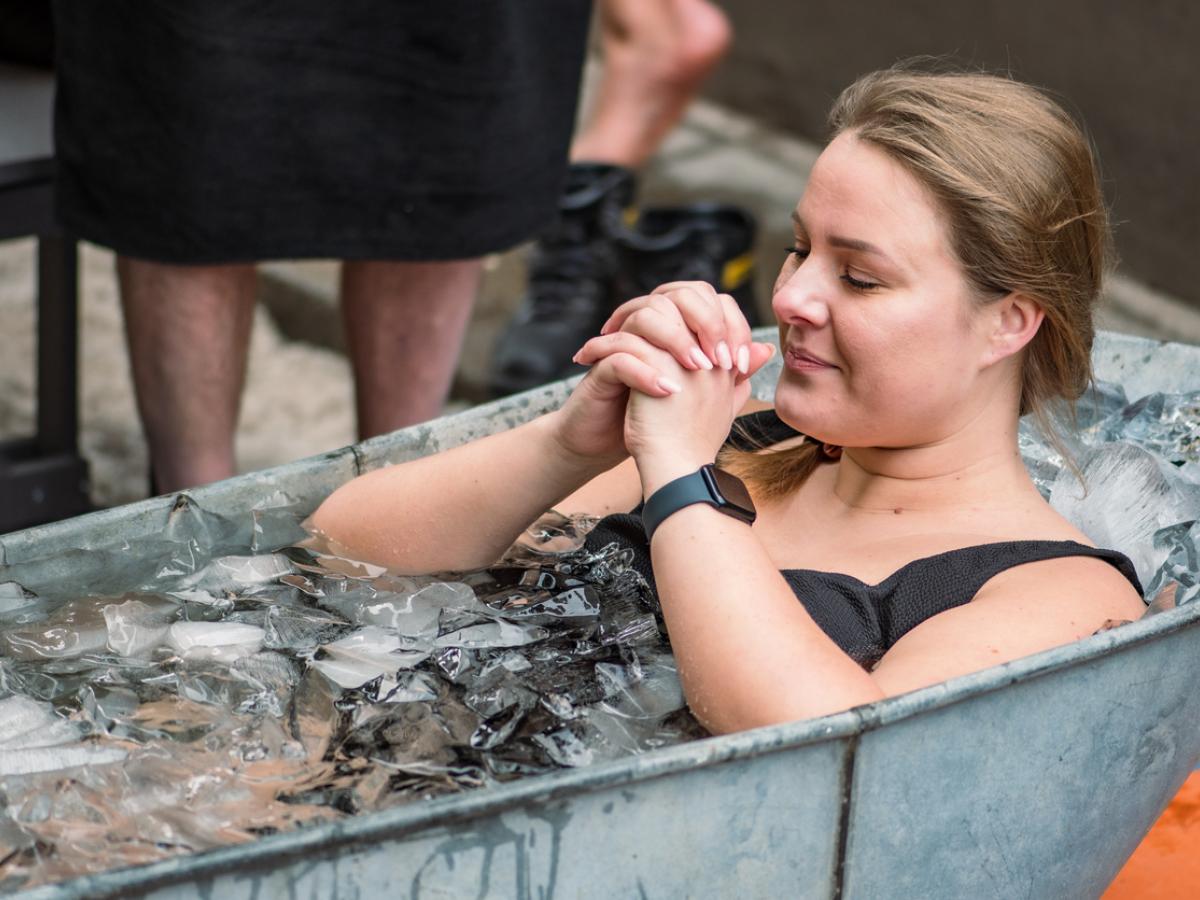Examining the Wim Hof Method’s effect on endometriosis pain

A woman carries out cold water exposure as part of the Wim Hof Method (WHM). Researchers from the University of Adelaide are set to explore the efficacy and impact of WHM for people with endometriosis, thanks to a grant from The Wilson Foundation. Credit: Michele Ursi
The efficacy of the Wim Hof Method (WHM) in relation to endometriosis will be explored in a pilot trial at the University of Adelaide.
Professor Mark Hutchinson from the School of Biomedicine will lead the trial which has been made possible by a grant from the Wilson Foundation. He and his team undertake cutting-edge research into persistent pain: how it is created and maintained, and how the mind and body interact during pain episodes.
“During our 12-month trial we will gather data on the efficacy of the WHM in people with endometriosis and its impact on outcomes relating to pelvic pain, psychological status, endometriosis lesion characteristics, autonomic nervous system and endocrine system responses, and innate immune responses,” Professor Hutchinson said.
“We also aim to determine the feasibility of investigating the WHM in a larger clinical trial, and at its conclusion, its safety for people suffering with endometriosis.”
Endometriosis is a condition in which cells like those found in the lining of the uterus grow elsewhere causing symptoms such as period pain, pelvic pain, infertility and fatigue. Currently there are a range of medical, surgical and complementary treatments available that may significantly reduce symptoms for some people. For some people there is no relief from any treatment in which case symptom control and other investigations may then be necessary.
WHM is a combination of breathing exercises, cold exposure training and meditation developed by the “Ice Man”, Wim Hof. The method, which has gained popularity and increasing science-based evidence in recent years, is thought to have benefits including improved recovery, mental resilience, and energy, as well as heightened focus and a reduction in stress.
“Crucial to our study will be an objective quantification of the molecular and cellular effects that the WHM has in women with endometriosis,” Professor Hutchinson said.
“We will quantify how engaging in the WHM practices of breathing exercises, meditation and cold water changes the molecular events in the participants bodies.”
Professor Hutchinson said the trial will examine each element of the method, as well as a whole, and assess how effective it is at controlling pain associated with endometriosis.
Media Contacts:
Professor Mark Hutchinson, School of Biomedicine, The University of Adelaide. Mobile: +61 (0)466 304 980. Email: mark.hutchinson@adelaide.edu.au
Rhiannon Koch, Media Officer, The University of Adelaide. Mobile: +61 (0)481 619 997. Phone: +61 (0)8313 4075. Email: rhiannon.koch@adelaide.edu.au
